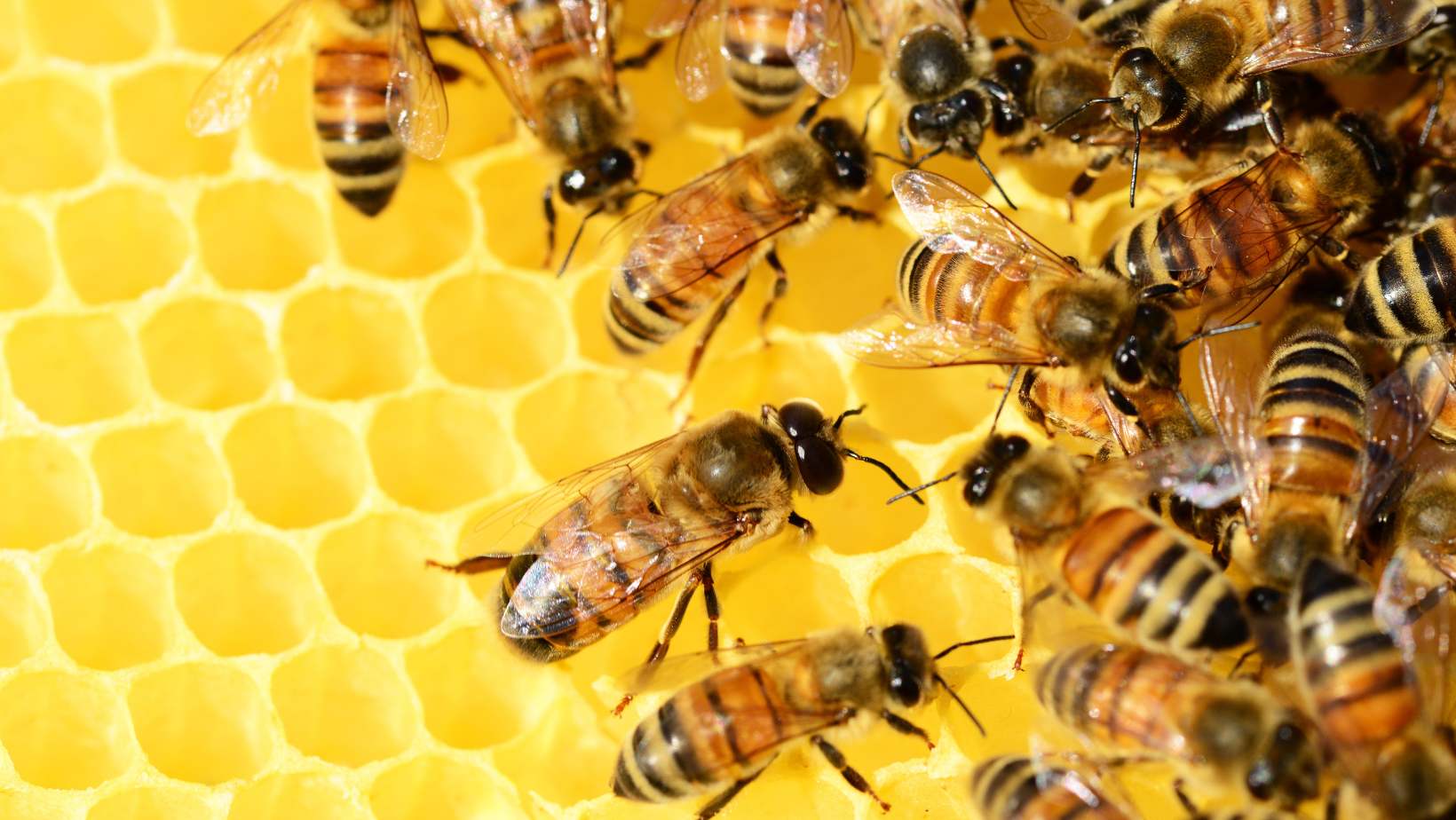On August 17, 2024, bee enthusiasts and environmentalists around the globe will come together to celebrate World Honey Bee Day. Observed every third Saturday in August, this special day serves as a reminder of the crucial role that honey bees play in our ecosystem and our daily lives. With over 20,000 different species of bees worldwide, World Honey Bee Day is an opportunity to appreciate these remarkable insects and raise awareness about the challenges they face.
The Sweet History of World Honey Bee Day
World Honey Bee Day was first celebrated in 2009, quickly growing into a global event that highlights the importance of bees in our world. The day not only promotes beekeeping but also educates the public about honey bees and their significant contributions to our environment and food supply.
The history of humans and honey bees intertwines with the earliest civilizations:
- 3500 B.C.: Organized beekeeping emerges in ancient Egypt
- 5 B.C.: Greek playwright Euripides describes honey cheesecake, showcasing honey’s culinary importance
- 1920s: Cave paintings discovered in Spain depict honey collection, dating back thousands of years
- 2009: The first World Honey Bee Day is celebrated, marking a new era of bee appreciation
Why Honey Bees Matter
Honey bees are far more than just honey producers. Their importance extends to various aspects of our lives and environment:
1. Pollination Powerhouses
Bees are responsible for pollinating a significant portion of our crops, playing a vital role in global food security.
2. Honey Production
Beyond its sweetness, honey has been used for millennia as a food preservative and natural remedy.
3. Ecosystem Balance
Bees contribute to the health and diversity of ecosystems by pollinating wild plants.
4. Economic Impact
The beekeeping industry supports livelihoods worldwide, from small-scale beekeepers to large agricultural operations.
Celebrating World Honey Bee Day
There are numerous ways to observe this important day:
1. Create a Bee-Friendly Garden
Plant nectar-rich flowers to attract and support local bee populations.
2. Educate Yourself and Others
Learn about different bee species, their behaviors, and the challenges they face. Share this knowledge with friends and family.
3. Support Local Beekeepers
Purchase locally produced honey and other bee products to support beekeepers in your community.
4. Participate in Bee-Centric Events
Many communities organize bee-themed activities on this day. Join a local event or organize one yourself.
5. Reduce Pesticide Use
Opt for bee-friendly gardening practices by minimizing or eliminating pesticide use in your yard.
Fascinating Honey Bee Facts
- A single bee colony can contain up to 80,000 bees.
- Honey bees communicate through intricate dances to share information about food sources.
- The flavor of honey varies depending on the nectar sources visited by the bees.
- Properly stored honey can remain edible for thousands of years.
- Bees must collect nectar from 2 million flowers to make 1 pound of honey.
The Buzz on Bee Conservation
While World Honey Bee Day is a celebration, it’s also a call to action. Bee populations worldwide face numerous threats, including habitat loss, pesticide use, climate change, and disease. This day reminds us of our responsibility to protect these vital pollinators.
Conservation efforts can start at home. By creating bee-friendly spaces, supporting sustainable agriculture, and making informed consumer choices, each of us can contribute to the well-being of honey bees and other pollinators.
Conclusion
World Honey Bee Day is more than just a sweet celebration; it’s a crucial reminder of the interconnectedness of our ecosystem. As we enjoy honey-flavored treats and admire the beauty of flowering plants, let’s remember the tireless workers behind these gifts of nature.
This August 17, take a moment to appreciate the humble honey bee. Whether you’re planting bee-friendly flowers, learning about beekeeping, or simply spreading awareness, your actions can make a difference. In celebrating and protecting honey bees, we’re not just preserving a species – we’re safeguarding our own future and the rich biodiversity of our planet.
Let’s make this World Honey Bee Day a celebration of appreciation, education, and action. After all, in the grand hive of life, we’re all in this together.
